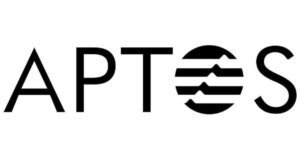 Ethereum dev says ETH 2.0 delayed until 2021, but Vitalik Buterin denies
Ethereum dev says ETH 2.0 delayed until 2021, but Vitalik Buterin denies Ethereum dev says ETH 2.0 delayed until 2021, but Vitalik Buterin denies

Cover art/illustration via CryptoSlate. Image includes combined content which may include AI-generated content.
The much-awaited launch of Ethereum’s ETH 2.0 “Serenity” update might be delayed to 2021, if Ethereum Foundation developers working on the project are to be believed.
However, Ethereum co-founder Vitalik Buterin is sticking with a 2020 release “regardless of the level of readiness.”
Delayed again, or maybe not
Developers from the Ethereum Foundation (EF) took to a Reddit AMA yesterday, fielding questions on ETH 2.0 among others.
One commenter was quick to ask EF’s Justin Drake about the launch of Phase 0 for ETH 2.0. The developer was quick to note he would like to some of (the below) four things before the protocol is eventually launched:
- a public testnet with 3+ clients running smoothly for 2-3 months
- an incentivized “attack net” running for 2-3 months (teased here—more details soon)
- a bug bounty program similar to bounty.ethereum.org running for 2-3 months
- serious differential fuzzing across clients
He then said “I’m now inclined to say that the earliest practical date for genesis is something like January 3, 2021,” around the same time as Bitcoin’s 12th anniversary.
Drake noted they “had made ETH 2.0 hard for themselves,” citing an earlier tweet:
We made Eth2 hard for ourselves:
* many design iterations
* many community clients vs one EF-led client
* libp2p vs devp2p; BLS12-381 vs BN254We could have launched a year or two earlier the easy way. It was painful but it was right. Our investments will pay off for decades 🙂
— Justin Ðrake (@drakefjustin) May 15, 2020
Meanwhile, Vitalik Buterin jumped into the comments to present his view, sticking to the earlier schedule of a 2020 launch:
“Eth 1 took 4 months from the first multi-client testnet to launch, and I’d argue the four-month clock started ticking for us at the beginning of July when Altona launched.”
Altona testnet an “amazing” development
Buterin said ETH 2.0 phase zero is a little simpler on-net, and that the protocol “is not going to have any critical applications depending on it until phase 1,” so the practical risks of breakage are lower.
With that in mind, he added: “on the whole, I see no reason to take more time for the eth2 phase 0 launch cycle than we did for the eth1 launch.”
Buterin noted the Altona testnet was running successfully (as of June 11), adding “having two clients at launch and increasing to 3-4 a few months after launch would be totally fine.”
Altona testnet has launched! ?
And I'm validating on 4 different clients, each 2 nodes nodes.#ethereum #eth2Lighthouse @sigp_io Nimbus @ethnimbus
Prysm @prylabs Teku @PegaSysEngAnd soon Lodestar too @ChainSafeth ?
Testnet stats: https://t.co/8nH2MdcggG pic.twitter.com/hbtX3Umd9N
— protolambda.eth (@protolambda) June 29, 2020
The broader Ethereum community on Twitter seemed displeased with the news. Some suggested developers need to communicate more clearly among themselves regarding the public mention of ETH 2.0 launch dates:
I don't really care about the eth2 "delays" but my god, the communication between the researchers needs to be a lot better than this.
A simple "just don't give any dates until we're really, really certain" rule would be enough…
— Anthony Sassano | sassal.eth ?? (@sassal0x) July 10, 2020
Meanwhile, considering Phase 0 was supposed to be a catalyst for Ethereum prices; some analysts said the news was bearish for ETH in the short term.




 CoinGlass
CoinGlass 


 Farside Investors
Farside Investors 






























































































